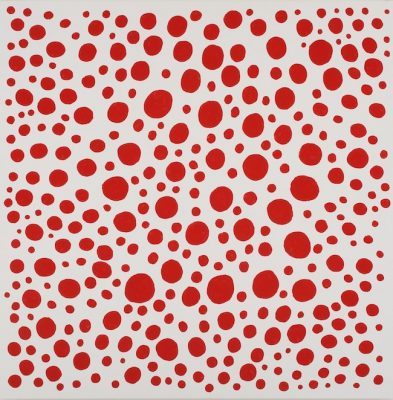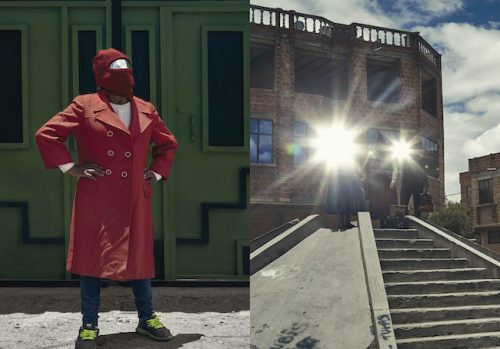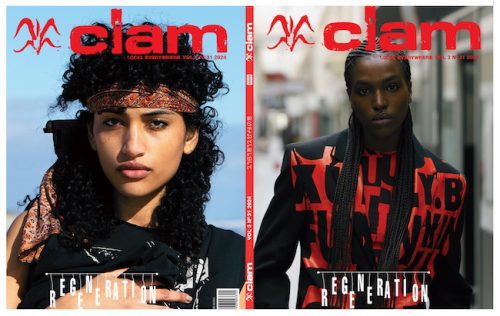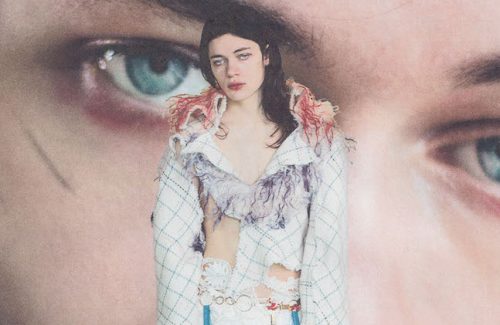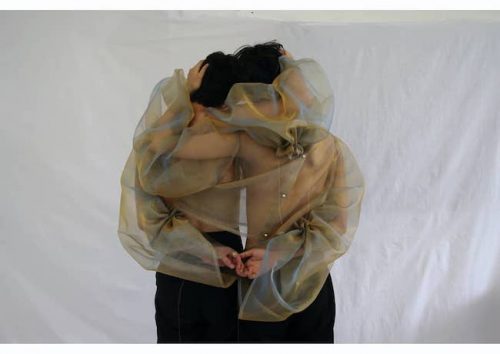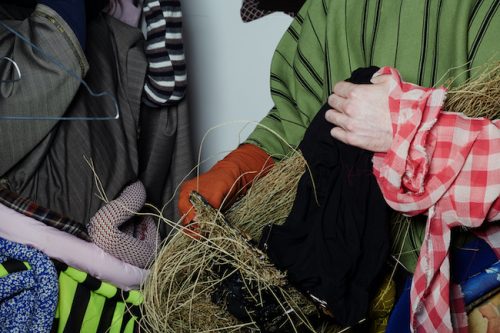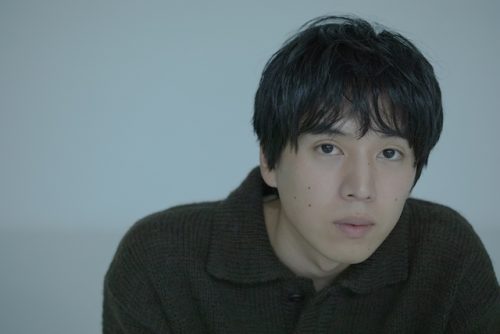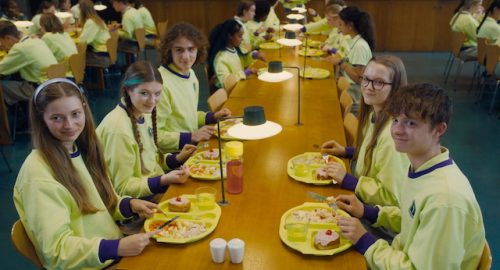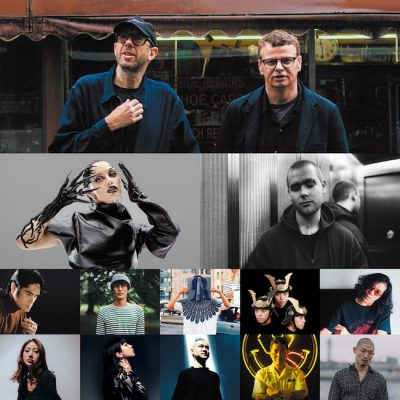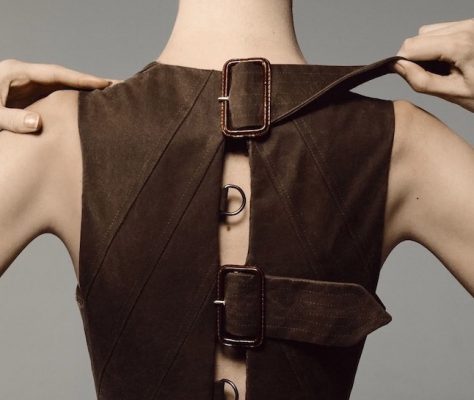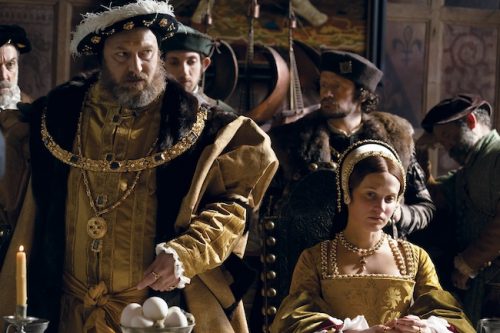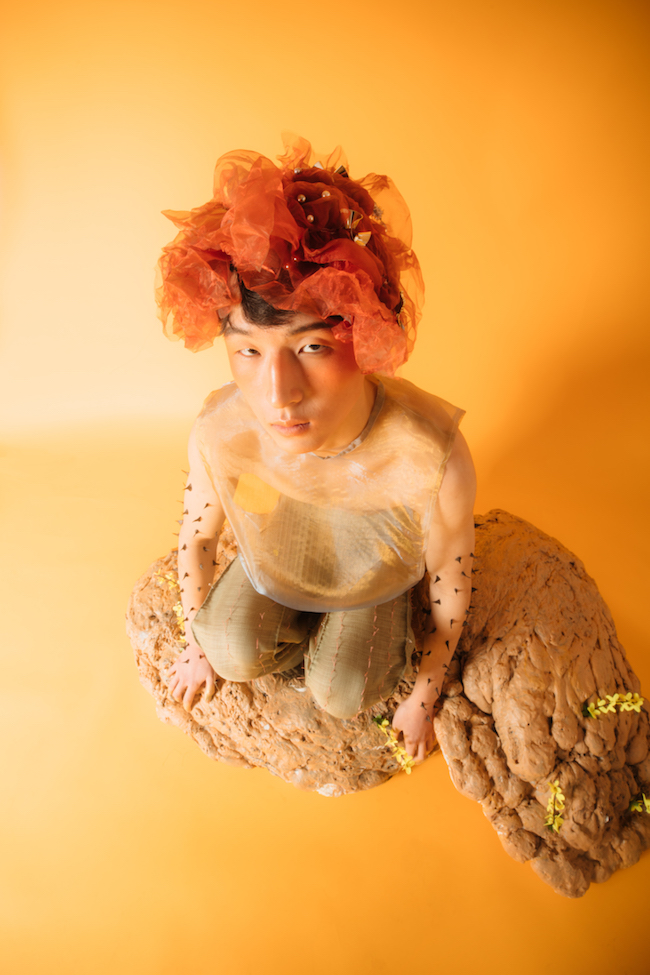
-What are the roots of your passion?
Gavin Gega : My mom says I was always interested in fashion. Since like four. I use to carry around a briefcase, and I love dressing around in suits. I think I got interested in it when I was thirteen. I was interested in tailoring. When I was sixteen I met people who like Rick Owens and Craig Green, avant-Garde designers. That’s what formed my foundation of style, design focus now.
-What does your outfit every day depend on? Is it affected by the weather, colours that catch your eye?
Gavin Gega :It’s affected by the weather. It rains a lot here so I always have to check the weather because I have so many things I can’t wear in the rain. They are too precious to me. I have shoes and jackets that I won’t wear in the rain. I end up having to rotate between similar outfits because it’s always raining so much. I’m not too concerned about wearing colour.
-What period fashion do you like and why do you like it.
Gavin Gega :Historically, 70s is sexy. Although I don’t reference it from my designs, I like to see it out and about. Also, I love how in the 1800s everything with done by hand. So I like to reference that period a lot because there is loads of buttonholes, hand sewing and shaping. It’s very interesting to reference those to pushing things in a modern direction. It’s easier to avoid the period while referencing it, it becomes more obvious if you reference the 70s. If you reference it in the 1800s, you can pull something new out of it.
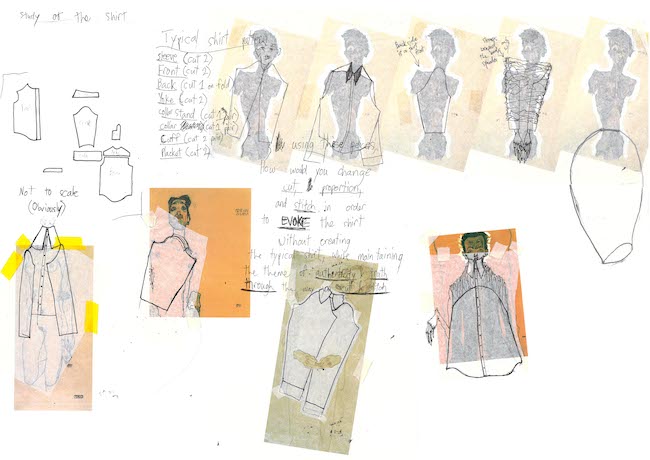
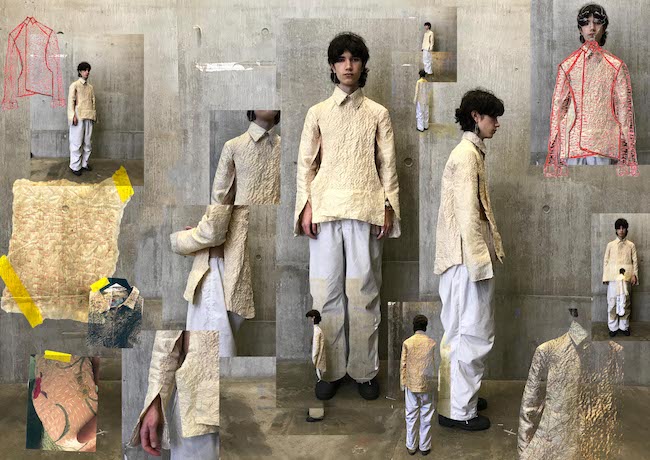
-What is your main source of inspiration? (Art, social media, childhood memories)
Gavin Gega :I love photography. So in every single project, I always find some photographer or sculptor to reference to. Besides that, I include a lot of emotion, thoughts about whats going on in times. Usually, I think about what’s going around me. For instance, I have this thought about life, because I enjoy psychology. So I have this idea about how people think and behave. Then I go on to looking for artists, that have some photos that I can reference, and I marry those two things together. Out of that give birth to something new. With the way I do my stitching, cutting or the way the shapes are.
I did a project where I was researching about chaos theory. I was listening to this psychologist talking about life being the constant balance between chaos and order. When in chaos, we have the opportunity and we take the opportunity and we birth order out of it. After having some semblance of order and structure in life, we get shot into another bout of chaos. So it’s like always going back and forth but finding this beauty in whats chaotic. I was comparing that theory to the mathematical term of chaos. I took the idea of chaos, and combined it with the mathematical symbols and graphs of Chaos, and used that to cut into chaotic ways. Where I wasn’t planning anything and just cutting into fabric. Once I had that cutout, I noticed it looked like the front of a jacket. So I was structuring that together and stitching it in these ways that resemble the graphs. It came about to a jacket or a pair of trousers. The way that they were shaped, sewn together was referenced by the psychological theory, as well as the mathematics.
-When you express yourself in fashion, do you have your philosophy?
(For example, incorporate something from your race, wear something sustainable, of express your emotional status)
Gavin Gega :I try to avoid everything that’s culturally referencing my own culture. I think that’s because Americana is not very old. Sometimes I reference a bit of Korean, Japanese cultures but usually I’m really into dark designers that do all black. I don’t feel like it represents my emotions at all. I like the structure.
-You have a background in tailoring. What made you choose to study menswear?
Gavin Gega :I didn’t even really think about it. Whenever I design clothes I would design clothes that I would wear. When I imagined it, I would imagine it on me. So I naturally went into menswear. Then I asked myself that question when I was in school. I tried to design womenswear, but I wasn’t very good at it. When I design menswear it can be worn by women easily. My menswear is very fluid. But when I design for women. It just looks bad. Because I always imagine myself in clothes.
-More genderless fashion is coming about. Have you seen this effect in menswear?
Gavin Gega :Definitely in my taste. I have seen other classmates still focused on classic menswear although they wouldn’t care who wore it. For me, I love seeing how many designers are starting to design heels for men. I think that a realm of fashion that can be taken in a more masculine way. When we look at some of our style icons from the past like Mick Jagger, notorious menswear figures, they all tried to bend the lines between masculine and feminine in fashion. So I see that influenced my work. It makes me very excited to see. Because of this division, we have only made sense when we talk about body types. Like obviously my body type is not the same as a women’s. But we can design these type of garments like skirts to be masculine, in a way even though they come from a feminine shape.
-What power do you think fashion has?
Gavin Gega :I always ask myself this question because I feel like you have to justify why you do this thing that a lot of people don’t see the value in. We are in a pandemic and everybody is trying to do important things, you stop focusing on things that aren’t important. But fashion, avant-garde, and high end are still thriving even amid this craziness. I think that kind of shows something about the significance of it. I think clothing empowers people, you feel good about yourself. You can appreciate the effort that goes into it. At least that’s why I enjoy clothing.
When I find something that’s unique, I feel such awe towards the person who came up with it. And I feel it inspires me in designing, but even before I was a designer, I feel like it inspires me to try new things daily. What if I take my shirt and wear it this way, or what if I have a jacket and wear it this way. Or get this new type of shape and I have to change my whole wardrobe to fit that in. I think sometimes you see things that are so inspiring that even though you have nothing that it will look good within your closet, you buy it and you have to find new things to fit with it because you love that one piece so much. So it’s hard to put a finger on what it is that is special about fashion.
When I think about the pieces that matter to me the most, it reminds me of a period in my life or I wore them to a specific event. Some of the things that I don’t wear anymore, I can’t sell them because they mean so much to me. The memories that are held within them.
-Fashion is not just about appearance; it is also a tool for political statements. How do you think the Black Lives Matter movement will change fashion?
Gavin Gega :I think activism is so much a part of everybody’s life daily. It’s hard to separate art and activism, or fashion and activism. Whether or not you even want to, what you do with your clothing, like the models you choose or the references you have will be viewed through that perspective. I think that’s relatively new in fashion. Especially now it’s heightened. For example, if you choose a model who is Asian, or Black, or White, you might have made that choice because the clothes look good on them. But everybody else is viewing it from the perspective of “Why did you choose that person of this skin colour or region? You have to make sure you choose all these types of people.” There is more benefit to it. Being from America, I have seen a lot of police brutality and horrible things that happened, and they happen to everybody, but especially in the Black community, it’s a real big issue. It’s hard because you want to say something about that through your clothing. Or show what you do because you feel it. We are artists and we try to communicate these feelings. On the other hand, sometimes I feel like clothing isn’t the place for it for me. I’ve seen people that take it and so a really beautiful job with it. I tried to do something like that and it was just disingenuous because I’m not an activist. When I see something that’s wrong I like to engage in conversation. I am never one to go to protest. I found myself getting caught in that for the past six months, trying to figure out how can I talk about these things that are clearly an issue and still be true to the way I usually create. Which almost have nothing to do with politics and activism. So I think I just found that for me, it’s best to leave it out of my design and focus on things that I use for my inspiration typically. I just want to talk about it outside. But I’ve seen how there is a lot of people successful with incorporating that in their work. I think its cool to see how different people can be creative in different ways. Especially when people that I know use that personal experience and express that through their clothing. I think that’s when it’s really beautiful because it’s so genuine. So I feel that if you are going to do something about that it has to be genuine. And if it’s not genuine, its best to leave it alone and let somebody else focus on it.
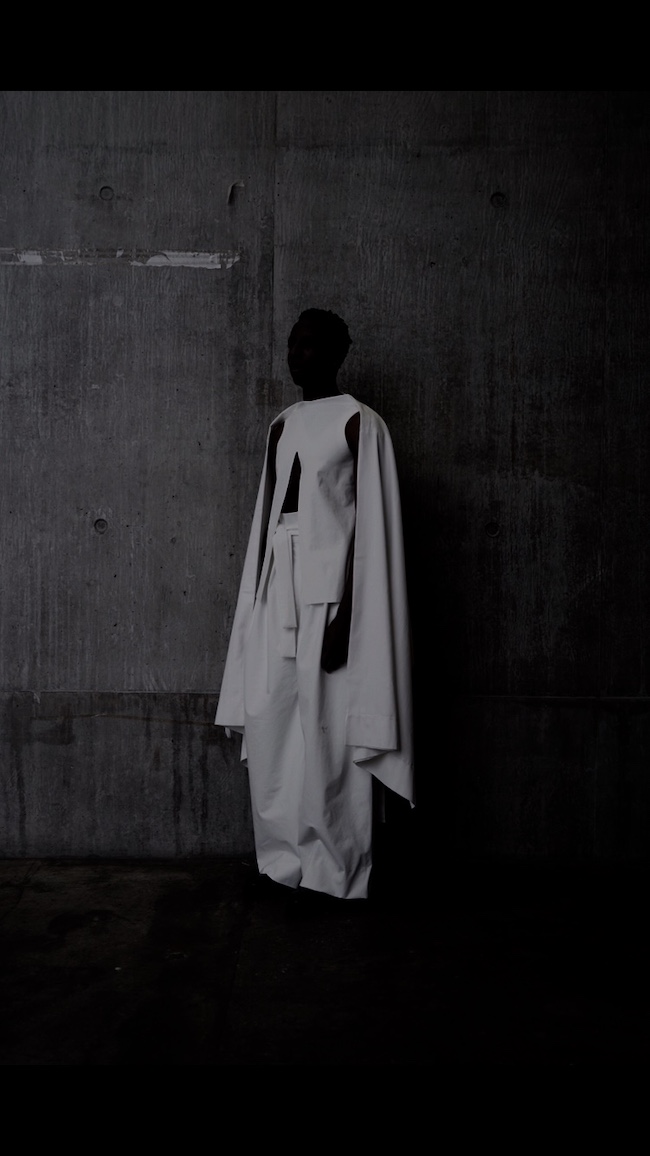
-How do you feel your ‘race’ is represented in the fashion world?
Gavin Gega :I don’t focus on it. The reason why I don’t focus on it is that I don’t have to? We are extremely overrepresented.
For me when I see a designer or a model, I don’t usually think about their race.
Now that I am dating Hyeyeon, I am excited to see Chinese, Korean and Japanese designers coming forward. Black designers have been coming up in the industry for a while since the 90s. I think that it’s coming a lot from streetwear, at least in America. Now in Fashion, we see the emergence of so many designers coming from China, Korea and Japan. We are seeing their work in Selfridges and Dover street. It’s the new wave of fashion. I’m excited to see the representation shift.
-Due to the pandemic, the way fashion is presented is very different. What are ways you continue to make original work?
Gavin Gega : I had these things that I wanted to do but couldn’t spend the time on them because they require lots of time. In the pandemic we didn’t have classes, we couldn’t meet with friends, so I could just sit home and sew all the time. I did loads of hand sewing projects and learning new sewing techniques. I researched about designers that I admire and their techniques. I was also trying to explore a new idea that I didn’t know how to do a whole project on it. Something I wanted to sample.
For example, “how do you sew something without using a sewing machine or needle and thread”, because I had no access to those things? So I looked at what type of materials and construction methods to use. I worked with a couple of ideas with that. It didn’t become an amazing garment that I love or a beautiful project but now I have an understanding of how to pursue that. Which I can put into a more legitimate project later.
-With quarantine and staying at home, many find it harder to be creative. What are ways you get inspiration?
Gavin Gega : It’s more difficult now. We used to have access to the school library which was an unbelievable resource. Now it’s tricky because you have to google things but Google is so bad at bringing up art. If I wanted to google “art photography about rocks” you will probably get stock photos of weird geological landscapes. Whereas if I go into the school library and look for “rocks”, I will find all these people who have been fascinated by rocks in different ways. So we do as much as we can. I go to as many shops that are allowed to be open and I go there for as long as I am allowed to be there. We’re trying to schedule visits to galleries. You have to plan everything in advance. You have to give yourself up to four days to figure out what you have to do. Whatever you plan, it might be that the place got shut down or they aren’t open anymore. It just takes a little bit longer to get to the point you want to be. You can get the inspiration you need but you just have to go through weird channels.
-In a time where you have access to millions of works online, how do you maintain original work? Are you affected by likes and followers on social media?
Gavin Gega : When making my work, I don’t think about how it will be reflected in social media. I just think about whether I like it, or if it’s interesting and new. When it comes time to post it, I want to find a way to show this most interesting so that I get the most engagement on it. It’s not even I put a lot of effort into this work, and when I put it out I want people to see it and engage with it. I don’t want them to just scroll past it, I want that to be something that stands out on the feed. That’s what’s difficult because you’re going up against thousands of images a day that people look at, and you are trying to make yours the one that stops somebody for a second and maybe click on your page. Maybe they will look at your other images, and you try to figure out how to do that with one post about a garment.
In trying to make it original, you have to accept that you’re ideas have probably been done before. But as long as you are being genuine and authentic with your research and your presentation, you will always wind up making something different than what other people have made because it comes directly from you. As long as you are letting it be genuine and authentic, I think it will be different. You also have to be very critical yourself. If you look at it and you think it looks too similar if you think that other people will think that. So you have to find a way to make it different.
you just have to be genuine about it. You also have to push yourself beyond the point you think you have it figured it out. Every time in a project I feel you get to a point where you look at the textile or garment and you like it. You take pictures of that and keep it, but then you take it one step further. Adding a new stitch, dip it, taking it one step beyond what you think is finished. Then at that point, you realise it becomes a new thing and its not similar to what has been done before because you took one step further from what you think was the end. I think that’s where you find something that’s new. That’s where I usually find my project are the best.
-Pandemic and climate change has shaped fashion in a certain way. What is your opinion on this?
Gavin Gega : I hate fast fashion. I hope things change with fast fashion but it seems like they’re not changing. I feel like more people are talking about shopping vintage, and talking about buying less clothing because of climate change. I’ve always believed in that philosophy, even before I knew about climate issues. Whatever reason that caused people to focus on buying less clothing, caring about the clothing you buy, supporting artists, the more we shift towards that the happier I am. With the pandemic and climate change, more people are shifting towards what is more essential. Even things that are unnecessary, like pieces of art, you realise how essential these things are. We just bought eight new vases.
When people are focusing on buying clothing that is more significant to them it actually will be an essential piece. I think it’s good how we are starting to focus more on essentials rather than frivolous spending, especially on fashion.
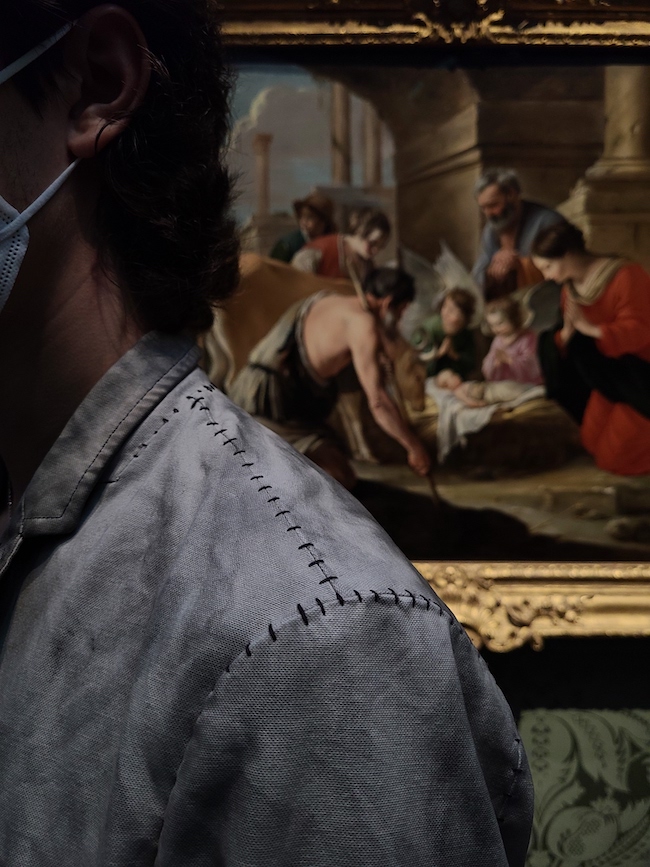
-Currently, fashion is experiencing a big transition. As a fashion student in this era, what are your next steps?
Gavin Gega : I’m focused on textiles right now because I have always been bad with textiles. I love fabric and when I work on something I try to not take the obvious steps. For instance, if I’m using glass or pottery as a reference, I feel like personally, it’s obvious to make a garment out of that material. How can I manipulate normal fabric to behave as though its glass or pottery? In that sense, I focus on what I can do with textiles. Can I sew it like this, or add this medium over the top, or can I bond it with this, can I paint it with this, or dip it in this. Those sort of things is the most innovative right now. Most people do one or the other. They either focus on fabric as fabric or pottery or glass as garments. If you marry those two, that’s where you find something very unique where it’s like turning fabric into pottery and turning pottery into the fabric. You create a garment that isn’t a sculpture or a normal piece of clothing.
-Fashion is very visual. A lot of work is judged by first glance. Your work tends to be very conceptual. How do you want your audience to see your work?
Gavin Gega : What I admire about Rick Owens is that he can be very conceptual but he also knows how to market himself and how to be commercial as well. He garners the attention of both people. He will do something bold so that people who are into visuals, can like and engage with it. At the same time, he also has meaning behind the collection. When you listen to the interview or explore the collections deeper on your own, you can see the conceptual backing of it. Therefore he has a strong community of people who love his conceptual work and a strong community of people who love his commercial work. He sells to both of those people and that’s why his brand is so successful. Same with Rei Kawakubo with Comme des garcons. She has very strong commercial work that allows her to fund the conceptual work.
I admire Carol Christian Poell. He does a lot of background research but he doesn’t care about being commercial. He’s happy doing that, his label is very successful in that sense. But he doesn’t have a major brand name awareness because he neglects the commercial side of things. For me I like the idea of making a collection, you put in a few pieces that will be your ‘wow’ pieces that will get you shared, but most of your collection is about things that amaze you. Of course, your ‘wow’ pieces must be genuine as well. You have to love the commercial side of things as well. If you don’t put your heart into all of it, I think it’s a waste. Your community will come, if you are being honest, there will be people who will find you. I think you don’t have to worry about forcing it.
-What is your advice to someone who is trying to step out of their comfort zone in fashion, to test their limits and take action?
Gavin Gega : Just do it.
I started when I was fourteen, just wearing everything I wanted and it wasn’t even that crazy. I loved suits at that time, so I wore suits every day to school. I was weird, everybody thought I was super weird. I knew that’s what I wanted to wear, so I kept doing it and I still had friends, and people let me be.
I just kept doing that over time, and you have to accept that if you want to try something new, you are going to look bad when you wear it for the first few times because you won’t wear it right. Of course you will do something wrong and struggle through the time where you dress like garbage. I’m sure I dressed like trash for two straight years. Between fifteen to seventeen, everything I worse was terrible because I was I didn’t know what I liked. I was making terrible outfits, but by making those mistakes, every single day even when I wasn’t going anywhere. That gave me confidence.
I used to be homeschooled so I could wear terrible outfits five days a week and my parents were confused. I would find one outfit that worked in those five days, and on Sundays when I go to church I would wear that outfit. That’s how you develop it and now when I walk outside I just have this confidence. That’s when you win, when you have confidence.
text Maya Lee
Gavin Gega
second year student at Central Saint Martins, studying Menswear.
https://www.instagram.com/gavin.gega/




